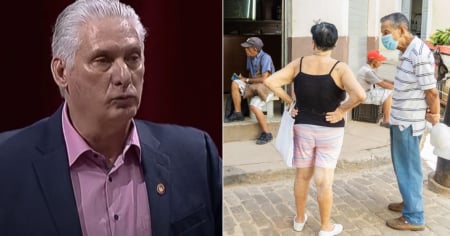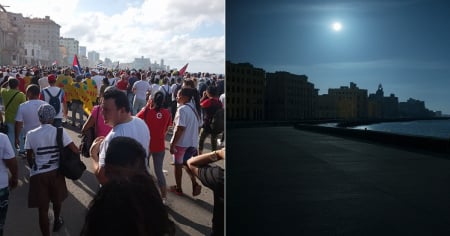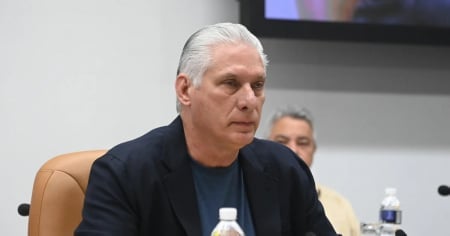Cuban leader Miguel Díaz-Canel closed the plenary session of the National Assembly of People's Power (ANPP) promising to put an end to blackouts, to change the energy matrix with greater use of renewable sources, and to inject foreign currency for the acquisition of domestic crude oil, all without specifying a timeline or offering dates to achieve such goals.
The announcement comes after weeks of extreme tension during which the Cuban regime has shown its confusion, lack of planning, and, in short, its inability to resolve the growing energy crisis facing the country. This crisis results from its poor management and lack of investment in the sector, which is directed towards the tourism industry controlled by the regime's leadership through the Business Administration Group S.A. (GAESA).
In his speech, Díaz-Canel emphasized that, although the results will not be immediately visible, the actions currently being taken to enhance the national electric power system (SEN) are "promising, solid, and, most importantly, driven by our own efforts," as if the development and prosperity of the country relied on the efforts of "third parties."
Used to managing the economy through aid, donations, and opaque investments from naive entrepreneurs and "usual suspects," the leaders of the Cuban regime adopt a solemn tone and a narrative of "sacrifice" when announcing state budget allocations to implement development policies.
On this note, the government of "continuity" has been resonating in recent days, announcing from all corners investments in renewable energy, such as the installation of solar parks that, they claim, will enable more efficient electric production capacities and redirect fossil fuels towards economic production.
"The investment we are making to promote renewable energies is perhaps the most important and significant action we are undertaking. It will not only help to create generation capacity but also lead to a more optimal use of fuels," stated Díaz-Canel.
During the fourth ordinary session of the ANPP, the Minister of Energy and Mines, Vicente de la O Levy, promised to generate nearly 600 additional MW through solar energy projects set to be completed in the first half of 2025. However, the fulfillment of these goals has been widely questioned by a disillusioned population that has witnessed the regime's promises turn to nothing over the years.
"As progress is made in the gradual reduction of fossil fuel use for electricity generation, the economy will be reactivated with increased production of goods and more services. This is a process of energy transformation towards an economy that relies more on renewable sources, that is, clean, reliable, and affordable energy," stated the leader of the "continuity" before heading out to the promotional march he organized, for which he allocated fuel, public transportation, and other resources that are scarce in the country.
In addition to the two projects of 1,000 MW using renewable sources and the maintenance of thermal power plants, Díaz-Canel promised a financing scheme in foreign currency to increase oil and gas production, but he was very cautious about setting a deadline for these initiatives.
The recent decision to place Ramiro Valdés in charge of the energy recovery program underscores the seriousness of the situation. However, his reputation as a "strongman" has not been enough to "set right" the critical path of the National Electrical System (SEN), despite his formidable presence in the central offices of the "energy dispatch." As a Cuban pointed out on social media, thermoelectric plants run on oil, not on blood.
Meanwhile, power outages continue to affect the population, and the deterioration of the electrical system reflects the urgent need for actions that go beyond speeches and promises. In this context, skepticism is growing among citizens, who criticize the lack of a clear timeline and tangible results, and are victims of the decay of a totalitarian regime that is making its final socialist gasps in its transformation into a state-run mafia capitalism.
Filed under:






